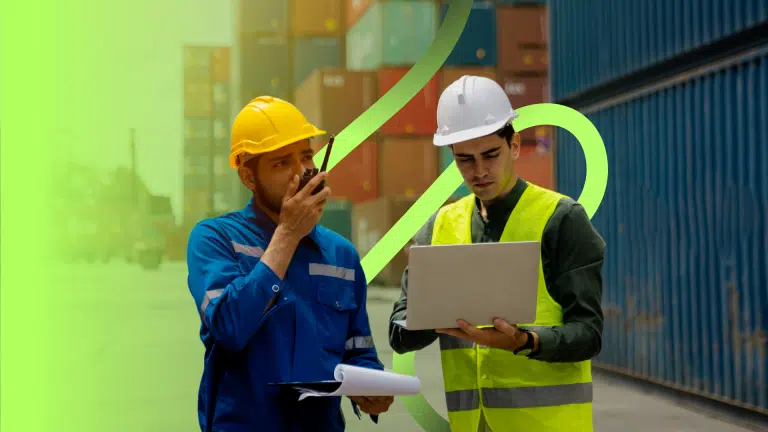
In this article
Key Reasons to Hire Shopify Developers

1. Shopify Developers: Customization for Competitive Advantage
A dedicated Shopify developer brings expertise in creating custom themes, designing unique user experiences, and developing functionalities tailored to your business model. While Shopify offers a variety of pre-designed themes, many businesses require custom elements to differentiate their stores from competitors. A Shopify developer can:- Develop tailored features to align with your brand identity.
- Enhance the shopping experience by implementing advanced UI/UX elements.
- Create seamless checkout experiences that reduce cart abandonment rates.
- Integrate third-party tools and APIs that enhance store functionality.
- Investing in customization ensures that your store is not just another generic Shopify site but a powerful sales platform that engages customers and drives conversions.
2. Shopify Developers: Technical Expertise for a High-Performing Store
A well-optimized Shopify store is crucial for user retention, search engine ranking, and revenue generation. Performance issues such as slow load times, security vulnerabilities, and poor mobile responsiveness can significantly impact sales for your Shopify platform. Shopify developers ensure:- Faster load times by optimizing images, minimizing code, and leveraging caching techniques.
- Mobile responsiveness to provide seamless navigation across different devices.
- Robust security measures to protect customer data and transactions.
- Efficient checkout processes that reduce friction and enhance customer satisfaction.
3. Shopify Developers: Cost Efficiency in the Long Run
While hiring a developer may seem like an added expense, it is a cost-effective decision in the long run. A skilled Shopify developer prevents costly mistakes such as improper integrations, broken functionality, and inefficient code, which can lead to lost sales and expensive fixes for your Shopify platform. In addition:- Hiring a certified Shopify Plus Partner ensures adherence to best practices.
- Custom-built solutions reduce dependency on third-party apps, lowering recurring costs.
- A properly developed site experiences fewer downtimes, minimizing lost revenue opportunities.
4. Shopify Developers: Ongoing Maintenance and Support
E-commerce is an evolving industry, requiring continuous updates, feature enhancements, and security patches. A dedicated Shopify developer offers:- Routine maintenance and bug fixes to keep your store running smoothly.
- Feature upgrades based on market trends and technological advancements.
- Emergency support to address critical issues during high-traffic periods.
- Data analytics insights to optimize store performance and increase conversions.
Key Factors to Consider Before Hiring Shopify Developers

1. Shopify Developers: Experience & Expertise
Before bringing a Shopify developer on board, assess their familiarity with Shopify’s frameworks, such as Liquid and APIs, and their overall experience with Shopify store development. A well-qualified developer should have a strong track record of successfully completed Shopify projects. Review their portfolio to gauge their previous work and expertise. Look for projects with features similar to your business needs to determine whether they can deliver the functionality you require.2. Shopify Developers: Customization & Technical Skills
To make your Shopify store stand out, customization is essential. A skilled developer should be proficient in HTML, CSS, JavaScript, and Liquid, enabling them to modify themes and develop custom store features. Your store may require unique elements or tailored functionalities built from scratch. Ensure the developer has the ability to optimize your store’s performance and enhance user experience through well-crafted customization.3. Shopify Developers: SEO & Performance Optimization
A website’s speed plays a crucial role in conversion rates and search engine rankings, making performance optimization a top priority. The developer should be adept at improving site speed, ensuring mobile responsiveness, and implementing SEO best practices. Ask about their expertise in technical SEO, including clean coding and structured data implementation. A well-optimized store not only improves performance but also provides a seamless shopping experience for customers.4. Shopify Developers: Integration Capabilities
Your Shopify store will likely need to integrate with external tools such as payment gateways, CRMs, ERPs, or email marketing platforms. A developer should have proven experience in setting up these integrations effectively. Seamless integration enhances operational efficiency and streamlines business processes. Verify their ability to establish API connections and troubleshoot potential system conflicts to ensure smooth functionality.5. Shopify Developers: Communication & Ongoing Support
Effective communication is vital for a successful project. Your developer should provide regular updates, respond promptly to inquiries, and clearly explain technical aspects in an understandable manner. Post-launch support is just as important as development. Ask about their availability for ongoing maintenance, bug fixes, and future updates. A reliable developer will offer long-term support rather than just focusing on short-term project completion.6. Shopify Developers: Pricing & Budget Considerations
While budget is an important factor, opting for the cheapest service isn’t always the best decision. Determine whether an hourly or fixed pricing model aligns with your financial plan. Prioritize quality over cost savings to ensure you get value-driven solutions. A skilled developer who delivers high-quality work and transparent pricing will provide better long-term results than a budget option that may lead to issues down the road.Essential Skills to Look for in Shopify Developers
 When hiring a Shopify developer, assessing their technical expertise, experience, and problem-solving capabilities is essential. Below are key skills to prioritize:
When hiring a Shopify developer, assessing their technical expertise, experience, and problem-solving capabilities is essential. Below are key skills to prioritize:
1. Shopify Developers: Technical Proficiency
- Proficient in HTML, CSS, JavaScript, and Liquid (Shopify’s templating language).
- Experience in Shopify theme customization and app development.
- Knowledge of RESTful APIs for seamless integration of third-party tools.
- Familiarity with Shopify Plus features such as scripts, flow automation, and advanced analytics.
2. Shopify Developers: Relevant Experience
- Proven ability to handle e-commerce challenges such as checkout optimizations and inventory management.
- Up-to-date knowledge of Shopify’s latest features, security enhancements, and industry trends.
3. Shopify Developers: Strong Portfolio
- A history of successfully executed Shopify projects.
- Demonstrated experience in designing stores with high conversion rates and engaging user experiences.
- Shopify Developers: Excellent Communication Skills
- Ability to translate technical concepts into actionable insights for non-technical stakeholders.
- Experience collaborating with designers, marketers, and business owners for seamless project execution.
Where to Find Qualified Shopify Developers
Finding the right Shopify developer requires exploring various sources. Here are the top platforms to consider:- Offshore Development Agencies
2. Shopify Experts Directory
The Shopify Experts Directory offers a curated list of vetted professionals approved by Shopify, ensuring high-quality service providers.3. Freelance Platforms
Websites such as Upwork, Fiverr, and Toptal offer access to Shopify developers with varying experience levels and pricing models.- Industry Networking and Conferences
Step-by-Step Guide to Hiring Shopify Developers
 Building a Shopify store requires the right expertise to ensure a seamless, high-performing, and scalable eCommerce experience. Hiring the right Shopify developer can make a significant difference in your store’s success. Here’s a step-by-step guide to help you find the best fit for your project.
Building a Shopify store requires the right expertise to ensure a seamless, high-performing, and scalable eCommerce experience. Hiring the right Shopify developer can make a significant difference in your store’s success. Here’s a step-by-step guide to help you find the best fit for your project.
Step 1: Define Your Business Requirements
Before starting your search, take time to outline your business needs. Consider the following:- Do you need a simple online store or a complex setup with advanced features?
- Are you planning to integrate a subscription-based model?
- Do you require a multi-vendor marketplace?
Step 2: Establish Your Budget
Cost is an important factor when hiring Shopify developers, but it should be balanced with value. While experienced developers may charge higher rates, they often deliver higher-quality work more efficiently, reducing potential long-term costs. When budgeting, consider:- Development fees
- Premium themes or plugins
- Stock images and branding assets
- Future updates and maintenance
Step 3: Search for Shopify Developers
There are multiple ways to find a skilled Shopify developer:- Ask for recommendations from business connections who have built eCommerce stores.
- Browse online platforms like GitHub to assess a developer’s coding skills.
- Attend local networking events, webinars, or Shopify-related meetups.
- Post job listings on freelance marketplaces, ensuring you conduct in-depth background checks.
Step 4: Assess Developer Portfolios
A developer’s portfolio is one of the best ways to evaluate their capabilities. When reviewing past work, look for:- Fast-loading websites
- Mobile responsiveness
- User-friendly navigation
- Custom features such as advanced search filters or interactive product displays
Step 5: Conduct In-Depth Interviews
Once you've shortlisted candidates, schedule interviews to assess their technical skills and problem-solving abilities. Ask questions about:- Their expertise in HTML, CSS, JavaScript, and Shopify’s Liquid language
- How they handle project scope changes or tight deadlines
- Their approach to troubleshooting issues if the final output doesn't meet expectations
Step 6: Finalize Terms and Sign a Contract
After selecting the right developer, put everything in writing to avoid misunderstandings. A well-defined contract should include:- Project scope and deliverables
- Timelines and milestones
- Payment structure
- Non-disclosure agreement (NDA) to protect business-sensitive information
- Revision policies and procedures for handling scope changes
Step 7: Grant Access and Start the Project
Once the contract is signed, provide your developer with the necessary access to your Shopify store. Shopify allows you to assign staff accounts with restricted permissions, ensuring they only access what’s required. To keep the project on track:- Set up a project management tool like Asana or Jira
- Schedule a kick-off meeting to align on goals and milestones
- Establish communication channels for regular updates
Step 8: Monitor Progress and Review Work
Throughout the project, continuously track progress to ensure quality and adherence to deadlines. Key actions include:- Conducting regular check-ins with the developer
- Using project management tools to monitor milestones
- Performing code reviews, especially if you lack technical expertise
Post-Development for Shopify Developers
Launching your Shopify store is just the beginning. To maintain performance and improve conversions, consider:- Scheduling regular updates to keep security measures and features up to date
- Tracking key performance indicators (KPIs) like site speed, user engagement, and conversion rates
- Analyzing customer feedback to optimize the shopping experience
- Running A/B tests to refine different elements of the store
- Keeping a Shopify developer on standby for emergency support, especially during high-traffic events
Tips to Hire the Right Shopify Developers for Your Business
 Finding the right Shopify developer is crucial for building a high-performing online store. Here are five essential tips to help you make the best choice.
Finding the right Shopify developer is crucial for building a high-performing online store. Here are five essential tips to help you make the best choice.
1. Define Your Requirements Clearly
Before searching for a developer for your online store, take the time to outline your needs. Being specific will help you find the right fit more efficiently. However, don’t worry if you haven’t figured out every small detail yet.- Consider these key questions to refine your requirements:
- How should your Shopify store look and feel?
- What essential features do you need?
- How many pages will your store have?
- Will you require additional functionalities like a blog or back-in-stock alerts?
- Front-end developers focus on the visual and interactive aspects of the store that customers engage with.
- Back-end developers handle server-side logic, database management, and core functions like order processing.
- Full-stack developers are skilled in both front-end and back-end development, offering a complete solution.
2. Establish Your Budget and Timeline
The cost of hiring a Shopify developer varies based on experience and certification, with prices ranging from a few thousand dollars to over ten thousand. Certified developers often charge more, but their expertise may be worth the investment. Additionally, set a realistic timeline for your project. Defining deadlines ensures that development stays on track without cutting corners.3. Decide Between a Freelancer and an Agency
Once you’ve determined your needs and budget, the next step is to choose whether to hire a freelancer or a development agency. Each option has its advantages and drawbacks: Freelancer Pros:- More affordable than agencies
- Access to skilled professionals worldwide
- Flexible work hours, often accommodating urgent requests
- May be unreliable and leave projects incomplete
- Might require frequent guidance
- Assessing their commitment level can be challenging
- A team of experts ensures efficiency and reliability
- Continuous support, even post-development
- Faster turnaround time due to multiple professionals working on the project
- More expensive than freelancers, but the expertise justifies the cost
4. Conduct Interviews
After shortlisting potential developers or agencies, schedule interviews to assess their capabilities. Ask the right questions to determine whether they can successfully manage your project. Here are some critical questions to ask:- How much experience do you have with Shopify development?
- Can you build a fully customized Shopify store?
- Have you worked on stores within my industry? Can you share examples?
- What challenges have you faced in Shopify development, and how did you resolve them?
- How do you optimize Shopify stores for SEO?
- What steps do you take to ensure the store runs smoothly without bugs?
5. Review Their Portfolio
To make an informed decision, thoroughly analyze the developer’s portfolio. Most experienced professionals showcase their past work, and some even include client reviews and testimonials, which can give you insight into their reliability. When reviewing their portfolio, focus on:- The ease of navigation and product discovery on the websites they’ve built
- The efficiency of the checkout process
- Any design or functionality aspects you particularly like or dislike
- A strong portfolio is a good indicator of whether a developer can meet your expectations.




